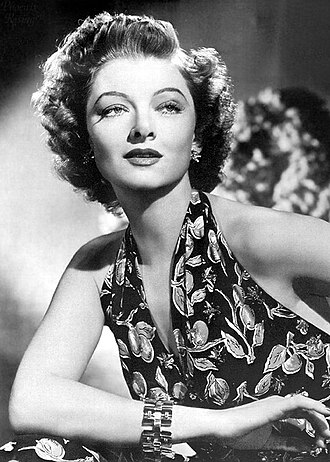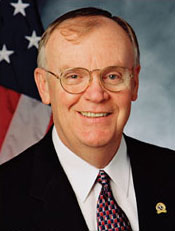Loy Last Name Origin, History, and Meaning
Where did the surname Loy come from? What does the surname Loy mean? Discover the history and meaning of the last name Loy and family migration on YourRoots Map.
Surname Loy Origin: What does the last name Loy mean?
The surname Loy or Loys is both a given name and a surname, with notable individuals bearing this name in various fields such as art, sports, politics, and music. According to YourRoots data, the Loy surname first appeared in records from Germany in the early 17th century, and it later gained prominence in the United States during the 18th and 19th centuries.
YourRoots data confirms the historical association of the Loy surname with Germany and its subsequent growth in the United States. By the 20th century, the Loy surname had significantly increased in records in the United States, where it remains prominent today. This surname reflects a diverse heritage of notable individuals across different countries and fields, showcasing its enduring legacy in modern society.
Loy Last Name History: Where did the last name Loy come from?
Origin of Loy Surname: Where does the last name Loy originate from?
According to YourRoots data, the surname Loy first appeared in records from Germany around the early 17th century. Please note that this reflects only YourRoots data for the exact Loy spelling and does not include other record sources or surname variations.
History of the Last Name Loy: What does the Loy surname history look like in the early days?
The Loy surname remained closely associated with Germany in the 17th century and later started growing significantly in the United States during the 18th and 19th centuries.
Global Spread: Where can we find the Loy surname today?
By the 20th century, the volume of records with the Loy surname grew significantly in the United States. The Loy surname remains prominent in the United States.
Explore Loy last name heritage and Loy surname origin based on YourRoots Map data
 VIEW THE ORIGIN OF SURNAME LOY
VIEW THE ORIGIN OF SURNAME LOYFamous People With Loy Surame?

Myrna Loy
Myrna Adele Loy (August 2, 1905 – December 14, 1993) was an American actress known for her versatility in adapting to various acting styles. Born in Montana, Loy began her career in silent films before gaining fame as Nora Charles in "The Thin Man" series. She excelled in both drama and comedy, starring in classics like "The Best Years of Our Lives" and "Mr. Blandings Builds His Dream House." Despite never winning an Academy Award, Loy received an Honorary Oscar for her contributions on and off-screen, including her work with the Red Cross during World War II. She remains a beloved figure in Hollywood history.

Mina Loy
Mina Gertrude Loy (December 27, 1882 – September 25, 1966) was a British-born artist, poet, and writer known for her modernist works. She gained posthumous recognition for her poetry, admired by T. S. Eliot, Ezra Pound, and others. Born Mina Löwy, she had a challenging upbringing in London, navigating a complex relationship with her Evangelical mother. Loy's art education began in London before she studied in Munich and Paris. In Paris, she met the English painter Stephen Haweis, who influenced her life. Loy's work reflects her struggles with identity, motherhood, and societal norms. She remains a notable figure in modernist literature and art.

Rory Loy
Rory James Loy (born Mar 19, 1988) is a Scottish former professional footballer turned football commentator. He played for Rangers, Dunfermline Athletic, St Mirren, Carlisle United, Dundee, and Falkirk. Loy also represented Scotland at the under-21 level. Growing up in Stranraer, Loy began his career at Lochryan Boys Club before joining Girvan, Ayr United, and Kilmarnock. He made his debut for Rangers in 2008 and had loan spells at Dunfermline Athletic and St Mirren. Loy later signed with Carlisle United in 2011. Known for his goal-scoring ability, Loy now shares his insights on radio and TV as a football commentator.

James Loy
James Milton Loy (August 10, 1942 - ) is a retired admiral of the United States Coast Guard who served as the acting U.S. Secretary of Homeland Security in 2005 and U.S. Deputy Secretary of Homeland Security from 2003 to 2005. Loy also held prominent roles such as the second administrator of the Transportation Security Administration and the Commandant of the U.S. Coast Guard. He played a crucial role in maritime security following the September 11 attacks and has received various awards for his service. Post-retirement, Loy has been involved in political endorsements and statements regarding national security and leadership.

David Loy
David Robert Loy (born 1947) is an American scholar and author known for his work in the Sanbo Zen lineage of Japanese Zen Buddhism. Loy's research focuses on the intersection of Buddhism and modernity, emphasizing social and ecological issues. He has authored several books on comparative philosophy and social ethics, including "Nonduality" and "The Great Awakening." Loy received an honorary doctorate from Carleton College for his contributions to Buddhism in the West and is a respected figure in the field of Buddhist studies and philosophy.
All images displayed on this page are sourced from Wikipedia or Wikimedia Commons.We use these images under their respective Creative Commons or public domain licenses. Wherever applicable, author attributions and license information are provided. If you believe an image is used incorrectly or outside its license terms, please contact us so that we can review and correct the issue.




.png)